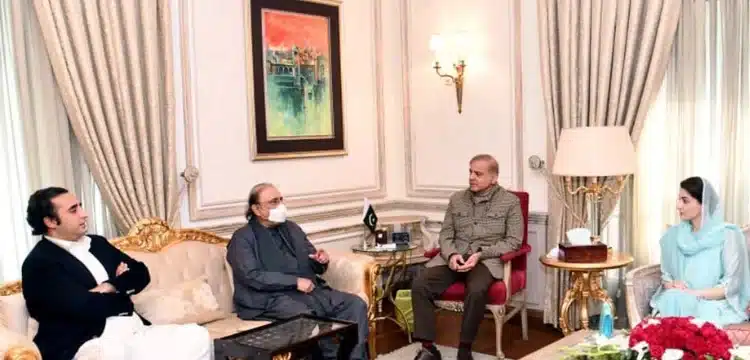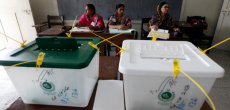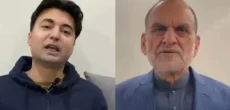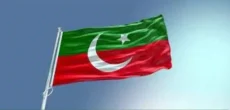[vc_row][vc_column][vc_column_text dp_text_size=”size-4″]The leadership of the Pakistan Muslim League-Nawaz (PML-N) and the Pakistan Peoples Party (PPP) convened a significant meeting in Lahore, where the senior members of both parties fundamentally agreed to collaborate for the stability of Pakistan in the aftermath of the general elections.
This mutual understanding between the two political entities was forged during a high-profile meeting, where top leaders from both the PML-N and PPP gathered to analyze the current political landscape and outline a path for cooperation.
Read more: PPP Seeks Bilawal As Prime Minister In Coalition
The meeting, hosted at Lahore’s Bilawal House, witnessed the participation of key figures such as PPP President Asif Ali Zardari, PPP Chairman Bilawal Bhutto-Zardari, and former Prime Minister Muhammad Shehbaz Sharif from the PML-N.
لاہور: پاکستان پیپلزپارٹی کی قیادت سے مسلم لیگ ن کا حکومت سازی کے لئے پہلا باضابطہ رابطہ
لاہور: مسلم لیگ ن کے صدر میاں شہباز شریف پاکستان پیپلزپارٹی سے حکومت سازی میں تعاون کیلئے بلاول ہاؤس پہنچ گئے
لاہور: صدر پی پی پی پی آصف علی زرداری، چیئرمین پی پی پی بلاول بھٹو زرداری اور… pic.twitter.com/bFTAo6JOPW
— PPP (@MediaCellPPP) February 11, 2024
A joint statement released shortly after the meeting highlighted that the leaders engaged in comprehensive discussions on various critical national issues, encompassing economic challenges, governance reforms, and strategies to counter political instability.
The statement conveyed the commitment of both parties’ leadership to collaborate in ensuring the progress and stability of the country. Recognizing the significance of unity and cooperation in addressing the multifaceted challenges confronting Pakistan, the leaders emphasized their dedication to fulfilling the mandate given by the people.
The PPP leadership indicated that the suggestions from the PML-N would be presented before the party’s Central Executive Committee (CEC) meeting scheduled for Monday.
Earlier in the day, the PML-N had a meeting with the Muttahida Qaumi Movement-Pakistan (MQM-P). A statement from the PML-N indicated that the two parties reached an agreement ‘in principle’ to work together towards forming the next government. However, MQM-P Convener Khalid Maqbool Siddiqui later clarified that no discussions were held on this subject during the meeting.
Following Thursday’s general elections, marked by allegations of pre-poll trickery and delayed results, PML-N leader Nawaz Sharif expressed optimism and unveiled plans to build a coalition. He nominated key figures, Shehbaz Sharif and Ishaq Dar, to engage with the PPP and other smaller groups, aiming to form a coalition government with his party taking the lead.
Despite Nawaz Sharif’s positive outlook, the Election Commission of Pakistan’s (ECP) dashboard painted a different electoral outcome. Independent candidates, predominantly supported by the Pakistan Tehreek-e-Insaf (PTI), dominated the tally, raising questions about PML-N’s ability to secure a majority for government formation.
According to the final results of the parliamentary elections on February 8, independent candidates, largely allied with PTI, won 101 seats out of 336 in the National Assembly. The PML-N secured 75 seats, while the PPP garnered 54. The MQM-P also secured 17 NA seats. Achieving a simple majority of 134 seats is necessary for a political party or coalition to form the government.
The complexity of the political situation is heightened by the fact that one constituency will have a delayed election due to the death of a candidate, while the result of another has been withheld. The evolving post-election scenario will undoubtedly shape the political landscape and determine the course of coalition-building and government formation in Pakistan.[/vc_column_text][/vc_column][/vc_row]











